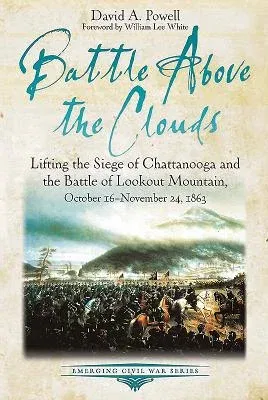In October 1863, the Union Army of the Cumberland was besieged in
Chattanooga, all but surrounded by familiar opponents: The Confederate
Army of Tennessee. The Federals were surviving by the narrowest of
margins, thanks only to a trickle of supplies painstakingly hauled over
the sketchiest of mountain roads. Soon even those quarter-rations would
not suffice. Disaster was in the offing.
Yet those Confederates, once jubilant at having routed the Federals at
Chickamauga and driven them back into the apparent trap of Chattanooga's
trenches, found their own circumstances increasingly difficult to bear.
In the immediate aftermath of their victory, the South rejoiced; the
Confederacy's own disasters of the previous summer--Vicksburg and
Gettysburg--were seemingly reversed. Then came stalemate in front of
those same trenches. The Confederates held the high ground, Lookout
Mountain and Missionary Ridge, but they could not completely seal off
Chattanooga from the north.
The Union responded. Reinforcements were on the way. A new man arrived
to take command: Ulysses S. Grant. Confederate General Braxton Bragg,
unwilling to launch a frontal attack on Chattanooga's defenses, sought
victory elsewhere, diverting troops to East Tennessee.
Battle above the Clouds by David Powell recounts the first half of the
campaign to lift the siege of Chattanooga, including the opening of the
"cracker line," the unusual night battle of Wauhatchie, and one of the
most dramatic battles of the entire war: Lookout Mountain.

